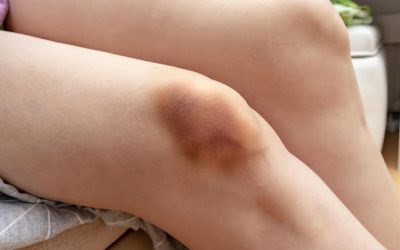If you experience these symptoms, it is essential to seek medical attention immediately. Finally, taking medication such as antihistamines prior to consuming alcohol may also help reduce symptoms. Ultimately, enjoy your red wine in moderation while also taking measures to reduce the risk of an allergic reaction. Doing so can help ensure that you’re able to enjoy your favorite drink without suffering from any unpleasant side effects. If you think you may be allergic to wine, it’s important to see a doctor so that they can confirm the diagnosis and recommend the best treatment plan. There are several ways to manage wine allergies, including avoiding wines that contain the allergens, taking medications to reduce symptoms, and receiving allergy shots.
Sneezing: Causes and How To Make It Stop

Labored or restricted breathing can be commonly brought on by alcohol intolerance. Those with existing heart conditions will also need to be careful before you drink alcohol in case alcohol intolerance could exacerbate their pre-existing conditions. While they may seem similar, alcohol allergy and alcohol intolerance are distinct conditions.
The Side Effects of Folic Acid Intolerance
Blood testing can test for total levels of IgE or IgE levels against a specific allergen. If you’ve ever wondered – why does my face get red when I drink – can wine make you sneeze this could be why. Quercetin is a plant pigment that has been shown to cause sneezing in some people.
Egg Whites

If you experience sudden sneezing after consuming these beverages, it may be an indication of histamine intolerance. The key to managing histamine intolerance is to recognize which foods and drinks are high in histamine levels and avoid them. In general, red wines typically have higher sulfite concentrations than white wines. Additionally, you can opt for wine alternatives such as mead or beer which typically contain lower levels of sulfites than wine.
These reactions may cause inflammation of the skin, throat and airways, leading to difficulty breathing. Finally, sulfite-induced reactions occur when an individual is sensitive to the sulfur dioxide used during wine production as a preservative. This is due to chemicals present in the taste buds that are activated by certain flavors or odors. Some of these chemicals can stimulate the production of histamines, which can lead to sneezing. To avoid this situation, it is important to drink https://taxvice.us/manuals-oxford-houses-of-virginia-6/ wines with a flavor that does not cause an allergic reaction in the body. Beer contains histamines, sulfites, and other compounds that can trigger sneezing, especially if you have allergies or alcohol intolerance.
- Most sufferers will first report minor breathing difficulties, traditionally accompanied by a noticeable increase in heart rate.
- Histamine intolerance is a complex condition that can be caused by several different factors.
- Yes, some people may experience more severe allergic reactions to alcohol, such as hives, itching, swelling, or shortness of breath.
- This emergency medication can be used to treat severe allergic reactions while you wait for help to arrive.
- Blood testing can test for total levels of IgE or IgE levels against a specific allergen.
It occurs when your immune system overreacts to alcohol, treating it as a harmful invader and releasing histamines. While most people can tolerate sulfites without issue, a small percentage of the population may experience adverse reactions, including sneezing. If you suspect sulfite sensitivity, it may be worth trying organic wines, which typically contain lower levels of sulfites. Red wine should be avoided if you have a sinus condition or are prone to developing them.
Red wines typically contain higher levels of histamines compared to white wines due to the fermentation process. For those sensitive to histamines, drinking red wine can result in a sneezing fit or other allergic-like symptoms. If you find that your congestion is persistent or worsening, it is important to speak with a healthcare professional as it may be an indication of another medical issue. Additionally, consider tracking the foods and drinks you consume to identify any potential allergens or intolerances that could be causing the symptoms. Making small changes to your diet in order to reduce exposure to allergens can help minimize the occurrence of nasal congestion after drinking red wine.
- If you’re prone to congestion after consuming wine, you can try drinking small amounts, staying hydrated, and taking an antihistamine before drinking to minimize the symptoms.
- Conversely, red wine contains significantly more histamine than white wine, with reports indicating red wines can have 20–200 times higher histamine levels.
- Histamine-induced reactions occur when an individual is sensitive to histamines naturally found in wine.
- The quality or price of the wine does not directly impact the likelihood of congestion.
What In Red Wine Causes Allergies?
If you experience these symptoms after drinking alcohol, you must see a doctor as you may need to be treated for an allergy. You’ll have those same symptoms amphetamine addiction treatment and a more intense reaction, wheezing, difficulty swallowing, low blood pressure, and heart palpitations, he says. If people experience symptoms after drinking alcohol, they should speak with a doctor for further advice. Additionally, some people may experience swelling of the lips, tongue and throat. Besides wines, fruits like bananas, kiwi, melons, and grapes can also contain sulfites, though in much smaller amounts. The symptoms of alcohol intolerance can include a stuffy or runny nose, skin flushing, red itchy skin bumps, and worsening of pre-existing asthma.
- While not a true allergy, these reactions can be uncomfortable and even dangerous in extreme cases.
- For example, one publication reports the occurrence of negative reactions in those with hypertension after consumption of wine containing Merlot grapes.
- Allergic rhinitis, a common condition characterized by symptoms like sneezing, stuffy nose, and itchy eyes, can be aggravated by alcohol.
- These reactions may cause inflammation of the skin, throat and airways, leading to difficulty breathing.
Sneezing while drinking red wine can be a perplexing and sometimes embarrassing issue for wine lovers. By understanding the role of histamines, sulfites, and allergies, you can take proactive steps to minimize these reactions and enhance your wine enjoyment. Remember to choose your wines wisely, stay hydrated, and consider food pairings to help manage any potential sneezing. If you continue to experience issues, consulting a healthcare professional may be beneficial. Dilated blood vessels can cause inflammation and swelling in the nasal passages.

In one 2005 Swedish study, those with asthma, bronchitis and hay fever were more apt to sneeze, get a runny nose or have ”lower-airway symptoms” after a drink, especially women. Sneezing after drinking beer could be caused by a mild allergic reaction due to a build-up of histamines in your system. Histamine is a compound found in beer, wine, and spirits that can elicit an allergic response.

